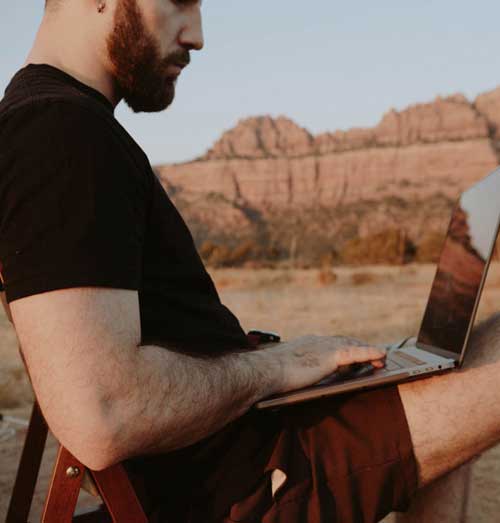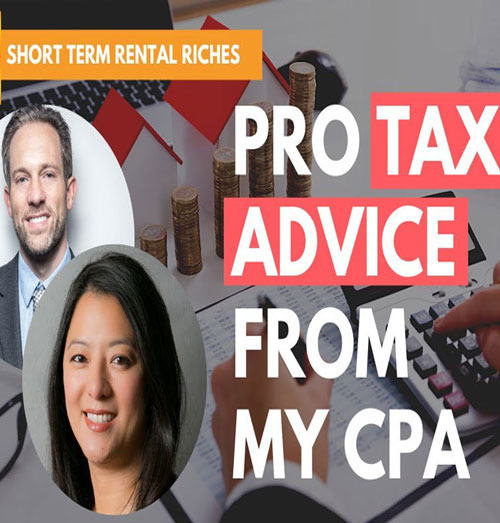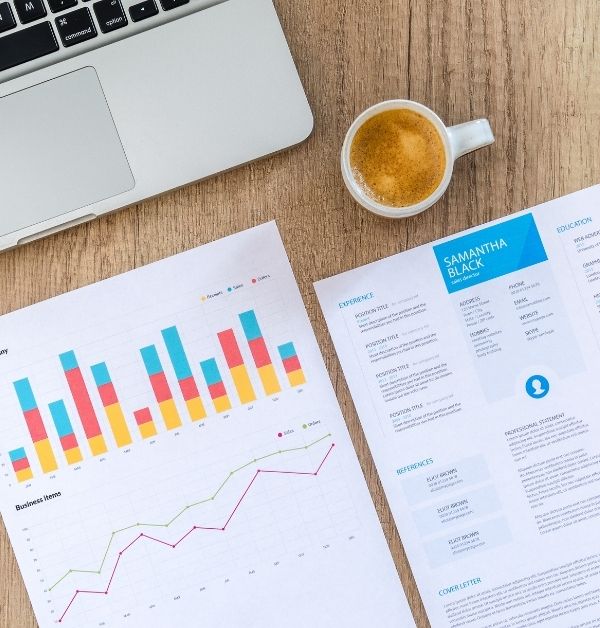223. Earn $1000/night by Mastering Airbnb Booking Windows
Today, we’re unpacking an often overlooked but crucial aspect of STR management: booking windows. Understanding the dynamics of booking windows can significantly impact your pricing strategy and, ultimately, your profitability. Whether you’re a seasoned investor or just starting out, recognizing the multiple booking windows your property might have and knowing exactly what they are is key to maximizing your returns.
So, stay tuned as we break down the inside scoop on booking windows, explaining why they vary and how you can master them for your property. We’ll explore how booking windows aren’t just about how far in advance a booking is made; they’re about understanding market dynamics, seasonal trends, and event-driven demand.
In this episode you’ll learn:
- Dynamic Pricing Tools Are Essential
- Understand Your Property’s Booking Window
- Strategic Pricing for Major Events
- The Importance of Minimum Expiring Prices
- Last-Minute Discounts
That wraps up our deep dive into booking windows and how they can make or break your short-term rental’s profitability. Remember, understanding and optimizing your booking window isn’t just about keeping your property booked; it’s about maximizing every booking’s value.
Need help managing your short-term rental and you don’t want to go it alone? Shoot us a message here and we’ll see if we can help.
Are you enjoying the podcast? Please subscribe, leave a rating and a review, and share it! This helps us reach others that may find the info helpful as well.
You can find all of our links here including our recommended resources, short-term rental playbook, Instagram, and more!
Click Here to view TranscriptPerhaps one of the most important things to having a successful short-term rental investment after, of course, having a nice property that’s set up well is pricing.
And there is a ton of factors that go into pricing.
A big one, and one that I find a lot of people don’t really fully understand, is our booking windows, and the fact that we don’t just have one booking window.
So stay tuned.
This week, I’m gonna break down some of the insides of booking window, dissect it a little bit, and explain why we have multiple booking windows, and why you should know exactly what they are for your property.
Welcome to Short Term Rental Riches.
We’ll discuss investing in real estate, but with a specific focus on short term rentals, quick, actionable items to acquire, manage, and scale your portfolio.
I’m your host, Tim Hubbard.
Welcome back to the Short Term Rental Riches podcast.
I’m happy you’re here again.
I’m excited at the time of this recording.
I’m heading to another conference, the STR Wealth Conference in Nashville.
So I’m actually recording this a little bit ahead of time at one of my properties here in Tennessee.
I’ll be heading over there soon.
And one of the things that I’m sure is going to come up at the conference is pricing.
It’s massive, but also booking windows.
And so today we’re gonna talk about booking windows.
The differences between some of them and why they’re different, and just a couple five top takeaways, things that you should be doing with your short-term rental, making sure you’re not leaving any money on the table.
So the first thing is our booking window, let’s just describe that real quickly.
That is the amount of time that one of your guests has in between the moment they make their reservation and the date they check in.
So if today I was going to check in one month from now and I made my reservation today, that would mean that my booking window for that specific reservation was a month.
And now a lot of times we look at the average booking window for a property.
Actually, sadly, I think a lot of people don’t even know the average.
So we’re gonna, if you’re not using a dynamic pricing tool yet, please make sure you’re using one or working with someone that has one and can help you with it.
We use Price Labs, but there’s other ones like Beyond Pricing or Wheelhouse.
So just make sure, grab one of those, I swear, it’s one of the best pieces of technology for a short-term rental, and they have tons and tons of tools.
This booking window is just one of those.
So in that example, that booking window was one month.
A lot of times, we just look at the average booking window across the year.
But the booking window changes, and so one of the top reasons why your booking window might be changing is because of a big event.
So let’s say Taylor Swift was coming to town, and everyone knew it, it was public, you better believe that your property is gonna run up a lot faster than it normally would, which means that that booking window would be bigger or longer for that specific event, for Taylor Swift coming to town.
Let’s say she’s coming to town in six months, and everyone just found out, well, you’re probably gonna sell out a lot further out in advance than you normally would.
So that’s one thing we need to be wary of, and if we’re using a price tool like PriceLab, we can go back historically and look at the average booking times before these big events.
So a lot of common ones, New Year’s, Christmas, these things we can go back and we can see when people were booking these reservations.
And so that is one other difference.
Aside from having our average booking window, we have different booking windows for top events.
We also have different booking windows for days of the week, really.
So if we have weekend dates, those are probably gonna book up a little sooner than weekday dates.
Most of the time, of course, we have to understand our actual market, right?
If we’re a very business-friendly sort of short-term rental, well, maybe a lot of our midweek dates get filled up sooner.
And so those are just things that we need to check out.
One other example that’s really easy to see is that the longer the reservation, typically, the further out someone’s going to book that reservation.
So if you have a medium-term rental, for example, and you have it on Airbnb, someone booking a month-long stay is usually going to put a little more thought and ask a few more questions on that and book it further out in advance than a weekend stay.
So the length of our reservation also tributes a lot to that booking window.
So lots of different booking windows going on here.
I think a good place to start is just knowing the average booking window across the year.
That’s at least going to help you set up some of your discounts and prices without being too, too far off.
So another really cool tool that we have available in PriceLabs, I’m sure this is available in the other software programs too, is the ability to actually set a minimum expiring price.
So what I mean by that.
Let’s say Taylor Swift’s coming to town and you think your property’s gonna rent for $2,000 for that night, or $5,000 or whatever it happens to be, or maybe for multiple nights, so the whole weekend you think you can get those rates, but you don’t wanna risk not getting a reservation at all and wait too long holding out to get those prices.
So what you could do is say, well, I think most people going to a Taylor Swift concert, they’re probably gonna plan that out, get their flights, do all that ahead of time.
I think they’re probably gonna have that all figured out within three weeks of the actual concert.
And so I’m gonna set my minimum expiring prices, these really high thousand dollar night stays, to expire after that three weeks.
So I’m gonna hope to get those prices, but if I haven’t gotten them by that time, then that price is gonna expire, and my price will go back to being priced dynamically.
So based off market occupancy, seasonality, all those other types of things, you of course always have a minimum rate for your property, but this is a little different.
This is a minimum rate specifically for a date out in the future.
So hopefully that didn’t confuse you too much.
If you have no idea what I’m talking about, well, make sure that you jump online and you look for one of these programs, or that you’re working with someone that knows how to use these tools.
I’ve dedicated years and hundreds of thousands of dollars through trial and error to figuring out how to manage my personal portfolio remotely.
And it wasn’t always easy, and it took a long time, but now my amazing team can professionally manage my properties without me.
And good news, our team can also manage yours.
Let us save you the stress and headaches and some money by offering you an industry low fee.
To find out more about partnering with us, head to strriches.com, hit the property management button, answer a couple quick questions, and meet with me personally.
That’s strriches.com.
Rest easy knowing that with my team, your properties will be in excellent hands.
Okay, so we talked about a few of the reasons why we might have different booking windows throughout the year.
So we have the events, we have some seasonality, we have the length of a reservation.
So the longer the reservation is, that’s going to impact the booking window as well.
But there’s also another one that’s sort of a little bit more subtle, and that’s when we launch a new property.
So let’s say you have a brand new property that you’re launching.
We know that we get a little bit of boost from the OTAs.
So OTA like Airbnb or booking.com, they want us to rent our property so that we continue to rent it, and we continue to stay on their platform where they’re earning money as well.
So we get a little boost.
It could be that our booking window for those first three or five reservations that you get from that higher visibility is like three days or four days or something.
But once some of that visibility goes away, your booking window’s going to change too.
It’s probably not gonna get booked so quickly.
So there is something to say about the length of time your property’s been listed online and how visible it really is.
So if you have a ton of reviews and they’re really good reviews, you’re much more visible on the platforms.
When you have open dates, you’re probably gonna get booked a little faster than a property that doesn’t have that.
So the booking window can actually change based on property, which is a little confusing too.
In other words, the things that are high in demand go first, right?
So the best restaurants, the tables get reserved first.
But a good way to understand this is just to look at our competition.
We can do that with these pricing tools, and we can see occupancies in our neighborhood around our property at any given time in real time.
So booking windows are also sort of like, they’re very similar to pacing.
We’ve talked a little bit about pacing before.
So pacing is basically how the current state of our property compares to this same time last year.
So if right now your property’s 50% booked for the next month, we can compare that with last year at the same time.
And if it was only 40% booked, then you know you’re doing a little better than last year, right?
So it’s sort of some of the same metrics going in there.
Also something that’s very important that we wanna know, but a little different than our booking windows.
So there are also some trends that are happening with booking windows, right?
And these booking windows don’t stay the same all the time.
They change.
They change all the time.
And one of those big trends, as you know, was COVID.
People were booking very last minute because they didn’t know if they were going to be able to fly, if they were gonna be able to get a flight, or if the rules in that city were going to change or lock things down or whatever it happens to be.
So we have to consider some of the things happening in our economy too.
If regulations changed overnight and that limited the supply of short term rentals in an area, well, with less properties, the booking window for those properties, if they still have the same amount of demand, is probably gonna go down, right?
So we need to look at all of our numbers and make sure that if we had discounts set up, for example, that started 30 days out, that if our booking window changes and everyone is booking 15 days out, that we’re leaving money on the table, right?
We’re discounting too soon, in other words.
So trends in the economy, trends in your particular city or neighborhood, can affect your booking window too.
Remember, travel is easier than it’s ever been.
If you missed last week’s episode, go back and check it out.
Talked about being on a cruise ship for 15 days.
I had internet out in the middle of nowhere, and so people can work from wherever they want.
They’re booking last minute.
I actually did a whole episode, a separate episode on this.
That was episode 206, talking about how it’s easier to travel than ever, and that’s affecting the booking window.
So because it’s easier to travel, people are booking later on more last minute.
This is a nationwide trend.
I think it’s gonna continue down this route.
I mean, someone can literally pull up their phone, book a flight, book a hotel, and book a short-term rental, all which Google has ability to do now in very, very little time.
And so I think this is gonna continue, but it’s really important.
I’ve got some just takeaways for you, some actionable tips for you to implement with your property if you’re not already doing so.
I have five tips for you here.
Real quick, just to sort of sum things up and also make sure you’re not leaving money on the table.
Number one, make sure you’re using a dynamic pricing tool.
If you’re not, head over to restmethods.com.
You can see our recommended resources there.
You can see the one that we use, but there’s also several others.
Just make sure that you’re using one of them so you have access to this data.
The second thing is understand your book and windows.
So understanding your average book and window throughout the year is a great start.
Remember, last year’s performance isn’t going to predict the future.
Things are changing.
So we need to look into it a little further and understand the book and window based on events, based on the length of stay, based on the day a week.
So just make sure you dig into that a little bit more.
So make sure you have a pricing tool.
Make sure that you understand your book and windows.
Remember, this is the third thing.
Remember that these things are changing.
And so trends like COVID, like the whole remote work possibilities, those are changing our book and windows.
Number four, experiment with those minimum expiring prices.
So if you really wanna lock in a super high price for New Year’s, but you don’t wanna wait till the very last minute to lower your prices, you can set this out a month, two months out in advance to try to capture that, but also make sure that you still secure booking.
So experiment with that.
And the last one, and this one’s really important, is make sure that your last minute discounts are not starting too far out in the future.
So if your average booking window is seven days, someone’s booking your property usually last minute within seven days, you don’t want to start discounts 20 days into the future because no one’s even looking at your property then yet.
And so make sure you take a look at those.
Again, these are all tools that you can find available in a dynamic pricing tool.
You can also look at the booking windows and historic averages.
I know this is a little more detailed this week.
Hopefully, I didn’t lose you anywhere there.
But just, if I had to sum this whole episode up in just a few words, I’d say that pricing is super, super important, and you need to either make sure that you understand it or that you’re working with someone that does.
So until next week, I hope that gave you a little bit of insight.
I hope your pricing is optimized, your property staying booked at the highest rates possible, and I hope you have a fabulous week.
Talk to you soon.
If you’ve been listening to the podcast for a while, well, then you know that I love technology, and we can save a ton of time implementing AI, artificial intelligence, in the right ways.
My team and I have been playing around with this for months, and we’ve written the perfect prompts that you can just plug in to your favorite AI tool, like ChatGPT, to help you uncover exactly who your guest avatar is, help you write your listing descriptions, help you write your photo captions, and so much more.
It’s a living, breathing document that we’re consistently working on, and I’d love to give it to you for free for being one of our loyal listeners.
You can head over to restmethods.com forward slash AI and get your copy for free.
I hope it helps you along your short term rental journey.















